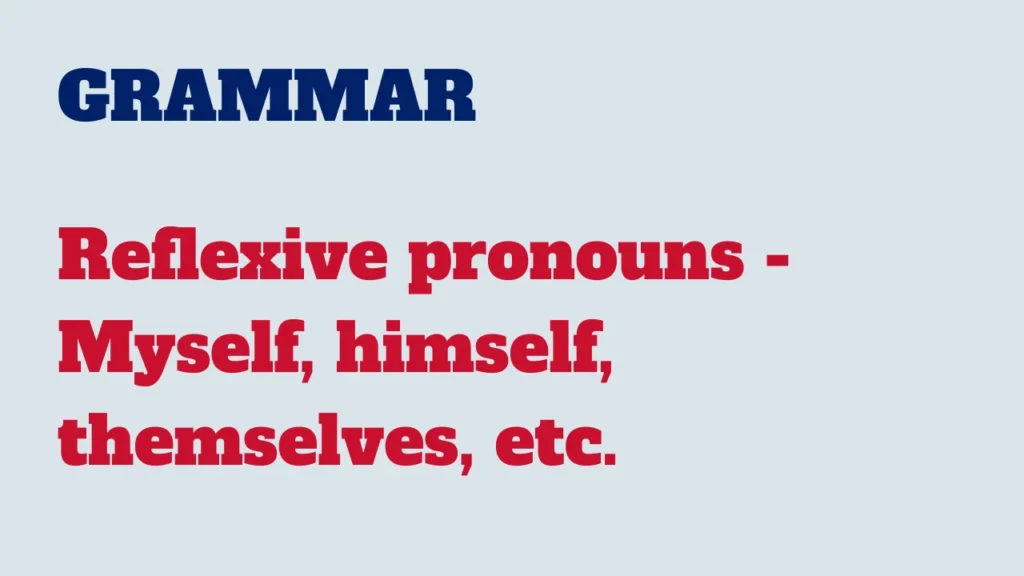Reflexive pronouns play a crucial role in English grammar, indicating that the subject of the sentence is also the object of the verb.

In this lesson, we’ll explore reflexive pronouns, focusing on their forms, usage, and placement within sentences.
Forms of reflexive pronouns
Singular:
Myself
Yourself (singular)
Himself, Herself, Itself
Plural:
Ourselves
Yourselves (plural)
Themselves
Table: Reflexive pronouns
| Subject pronouns | Reflexive pronouns |
|---|---|
| I | Myself |
| You (singular) | Yourself |
| He | Himself |
| She | Herself |
| It | Itself |
| We | Ourselves |
| You (plural) | Yourselves |
| They | Themselves |
In reflexive constructions, the reflexive pronoun reflects the action of the verb back onto the subject.
For example:
- I washed myself.
- She prepared dinner herself.
- They congratulated themselves.
Usage of reflexive pronouns
Reflexive actions:
Reflexive pronouns are used when the subject and the object of the verb are the same, indicating an action that the subject performs on itself.
Example:
I cut myself while cooking.
Emphasizing the subject:
Reflexive pronouns can be used for emphasis, emphasizing that the subject acted alone or without assistance.
Example:
She painted the entire room herself.
With certain verbs:
Some verbs are commonly used with reflexive pronouns, such as “enjoy,” “introduce,” or “accustom.”
Example:
He introduced himself to the guests.
Placement of reflexive pronouns in sentences
After the verb:
Reflexive pronouns usually come immediately after the verb or after the object of a preposition.
Example:
She bought the dress for herself.
Emphatic use:
For emphasis, reflexive pronouns can also be placed at the end of a sentence.
Example:
They handled the situation themselves.
Reflexive pronouns serve to reflect the action of the verb back onto the subject. Understanding their forms, usage, and proper placement within sentences is crucial for constructing grammatically correct and clear expressions. By incorporating reflexive pronouns appropriately, you can convey actions and emphasize subjects effectively in your communication. Happy learning!



